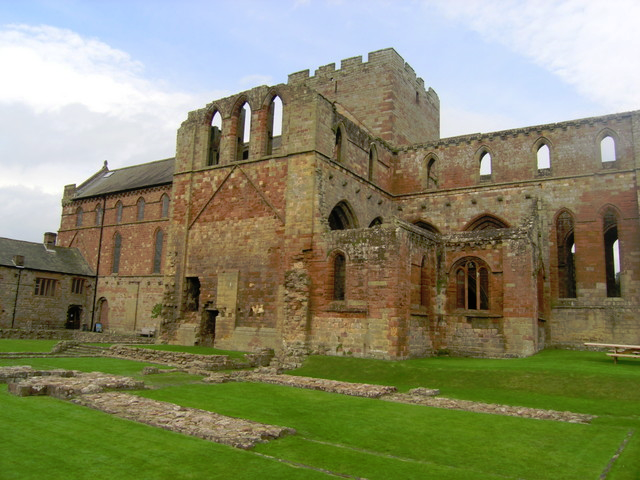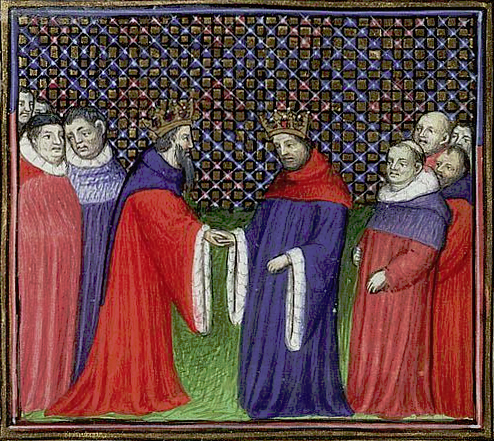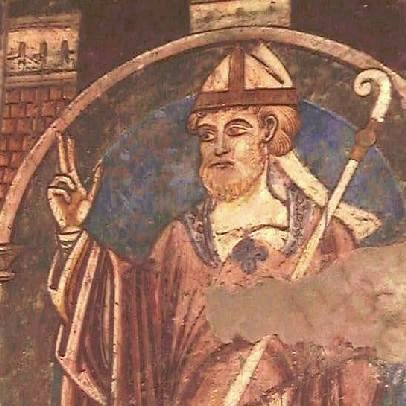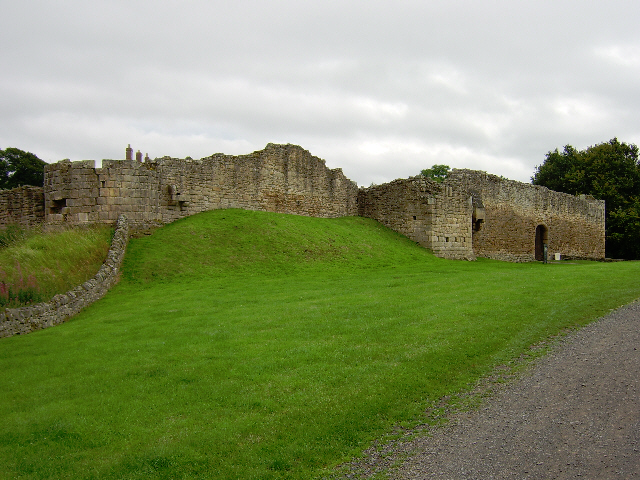To continue with the #NevillesCross campaign, #OTD the Scottish army under David II arrived outside #Durham and camped in the bishop& #39;s manor of Bearpark. They had been busy over the preceding few days since the capture of Liddel. #medievaltwitter #medieval #Scottish #History https://twitter.com/IainMacInnesUHI/status/1316051712638156800">https://twitter.com/IainMacIn...
Before the truce in Cumberland the Scots sacked Lanercost Priory, no doubt one extra reason for the chronicle& #39;s depiction of events on this campaign. The Scots were said to have "plundered the treasury, shattered the bones, stolen the jewels, and destroyed as much as they could”
As they headed east the Scots arrived at and sacked Hexham Abbey. The Lanercost chronicler wrote that "David utterly despoiled the aforesaid priory for the Scottish army lay there for three whole days, and David took delight in burning, destroying and wrecking the church of God.”
It is notable that it is David II that is the subject of so much vitriol in this and other accounts. Of course, he was in command and could control the army in its depredations. Violence was, then, seen as a result of David& #39;s deliberate actions to commit such acts.
Again, though, we have to be cautious. The chroniclers were writing after the event and they knew what awaited David outside Durham. They constructed, then, a deliberate tale of a violent Scottish king whose acts would so displease God that he would inflict defeat on him.
Even Scottish chroniclers got in on the act, although in their case in terms of avoiding the disaster that they knew awaited the king. Walter Bower wrote that Saint Cuthbert appeared to David II on the night of 15 October warning him not to invade his patrimony of Durham.
Such warnings were ignored. Having left Hexham, the Scots took the surrender of Aydon Castle, marched on to Ebchester, and (with a possible detour towards Ryton), arrived on 16 October at Bearpark, the bishop of Durham& #39;s manor outside the city.
The Lanercost chronicler wrote that David II "strictly ordered that [Hexham, Corbridge, Darlington and Durham] should not be burnt...because he intended to obtain his victual from them in the winter season." This suggests that the king planned for a much longer campaign.
If this was indeed the case, then his ambitions were to be frustrated on the very next day. But, for the moment, free from English intervention, David II settled down for the night at the comfort of the bishop& #39;s manor... #ToBeContinued

 Read on Twitter
Read on Twitter






![The Lanercost chronicler wrote that David II "strictly ordered that [Hexham, Corbridge, Darlington and Durham] should not be burnt...because he intended to obtain his victual from them in the winter season." This suggests that the king planned for a much longer campaign. The Lanercost chronicler wrote that David II "strictly ordered that [Hexham, Corbridge, Darlington and Durham] should not be burnt...because he intended to obtain his victual from them in the winter season." This suggests that the king planned for a much longer campaign.](https://pbs.twimg.com/media/EkcL7ZpXIAEYiyo.jpg)



